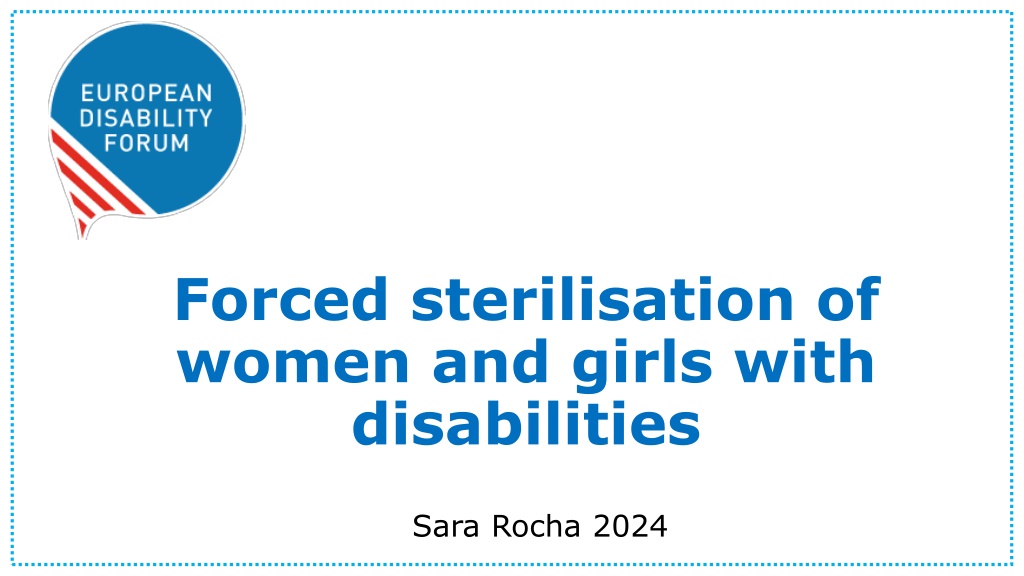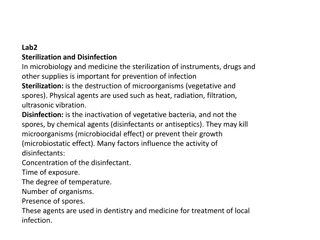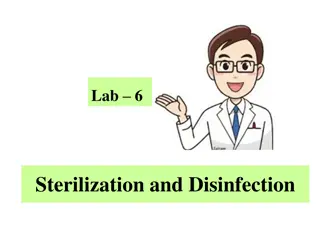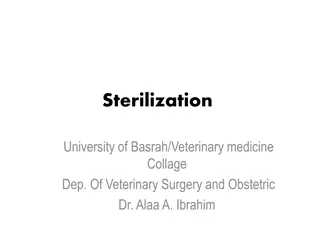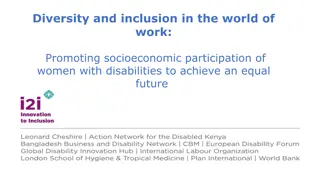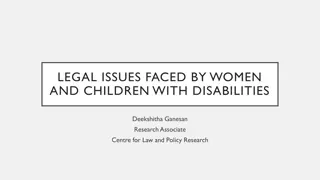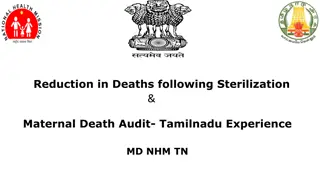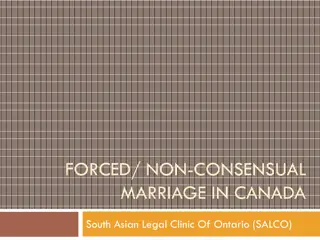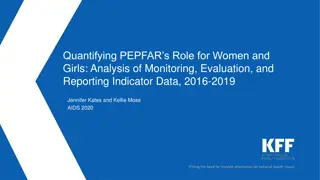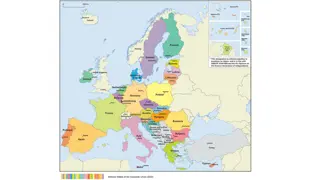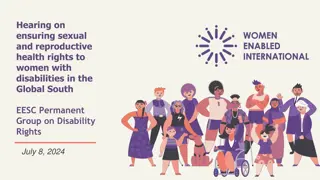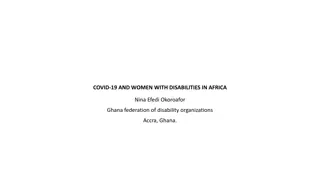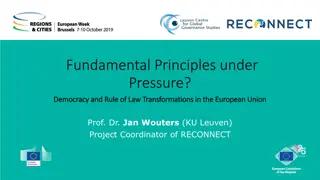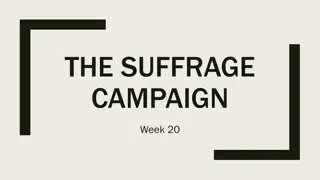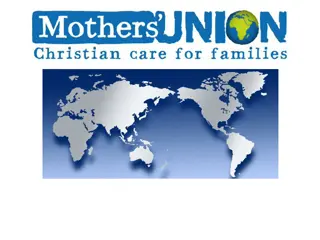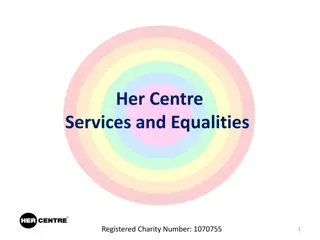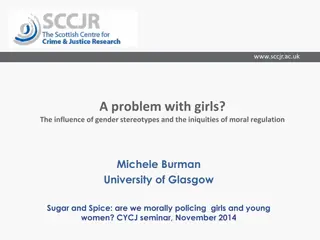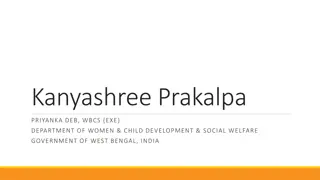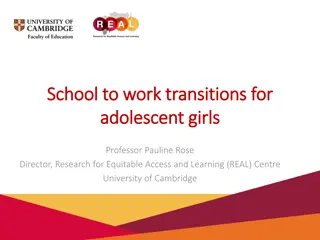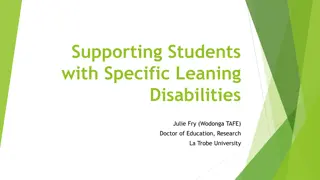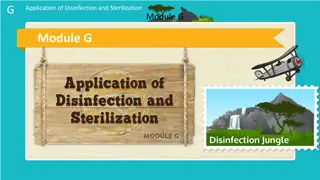Challenges in Eradicating Forced Sterilization of Women and Girls with Disabilities in the European Union
Forced sterilization persists in some European Union countries, affecting women and girls with disabilities, despite being a violation of their sexual and reproductive health and rights. Legal capacity laws and lack of implementation of human rights frameworks contribute to this issue. Advocacy efforts are needed to protect vulnerable individuals from this harmful practice.
Download Presentation

Please find below an Image/Link to download the presentation.
The content on the website is provided AS IS for your information and personal use only. It may not be sold, licensed, or shared on other websites without obtaining consent from the author. Download presentation by click this link. If you encounter any issues during the download, it is possible that the publisher has removed the file from their server.
E N D
Presentation Transcript
Forced sterilisation of women and girls with disabilities Sara Rocha 2024
Status of forced sterilisation in EU Member States Only 9 countries criminalise forced sterilisation as a distinct offence. 12 countries allow forced sterilisation of persons with disabilities (sometimes as exception of the general offence). 3 countries (Portugal, Czechia and Hungary) allow it in minors. Even if not legally allowed, it still happens in some State Members. It is a violation of sexual and reproductive health and rights and a form of violence against women. Not allowed by law Allowed for adults Allowed minors and adults
Forced sterilisation Reports of forced sterilisation in Belgium, France, Poland and Lithuania in institutionalised women and girls with disabilities, sometimes as requirement to enter institutions. Reasoning includes menstrual management, protection against sexual abuse, contraception, facilitate care, and others. Lack of data and transparency by the State Members on this topic. Prevalent in women and girls with a psychosocial or intellectual disability.
Legal capacity laws Some countries have legal capacity laws based on substituted decision-making, where legal guardians can make decisions in substitution of the person with disability. These legal guardians can be a carer, family member, institution worker, doctor, and others, depending on that country s law. While article 12 of the CRPD is not implemented across the EU, by shifting legal capacity laws to supported decision-making, we will continue to have human rights violations of women and girls with disabilities sexual and reproductive rights, including forced sterilisation, contraception, abortion, and others. This needs to be achieved with deinstitutionalisation, considering the lack of oversight and accountability in institutions.
EU legislation Forced sterilisation is prohibited by the United Nations Convention on the Rights of Persons with Disabilities (CRPD) and the Istanbul Convention, but not by the new Directive on combating violence against women. It was removed by the Council of the EU. Malta involved disabled-led organisations to change their legislation. Japan s courts ordered the government to pay damages for the people with disabilities forcefully sterilised. Sweden set up a government body to compensate them.
The impact What do you still need to eradicate forced sterilization in all countries of the European Union? I am not proud to suffer forced sterilization in my own flesh, to see myself manipulated by my own family to take that decision and to feel the lack of protection in my own body about such a great violation of sexual and reproductive rights. It has caused me to carry multiple traumas related to my sexuality throughout my life. We have to protect women and girls with disabilities from a world where beliefs such as fear and ableism completely dominate us. Cristina Paredero, a Spanish autistic activist who was forcefully sterilised.
Conclusion The ableist and paternalistic idea women with disabilities are unable to decide about their bodies or to become mothers, the normalisation of violence against us disguised as care and the view of our bodies as to be cared for, instead of potential carers, led to the complicity of the EU with eugenic practices and human rights violations. Women and girls with disabilities deserve appropriate sexual and reproductive care and to become mothers if they wish to, including through IVF, fertility treatments, and by receiving support for motherhood. After most of my interventions on this topic, I m always asked what about the severely disabled? , so I leave you with a question: Where would you cross the line, between the able enough and the too disabled to have rights as EU citizen and decide on your life and body?
Thank you for your attention The European Disability Forum www.edf-feph.org Avenue des Arts 7-8, Bruxelles 1210, Belgium Twitter: @MyEDF Facebook: @MyEDF
